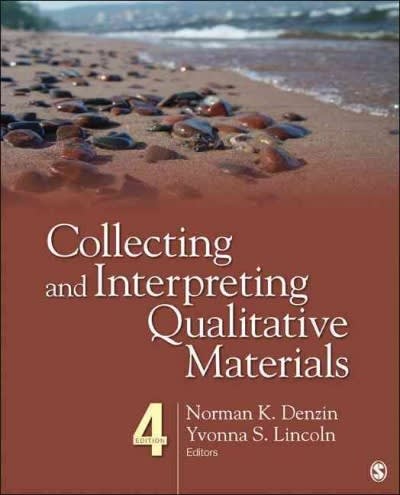Question
I want to check if my discussion post answers the question accurately and sufficiently. Prompt: What do the studies of Sperry and Gazzaniga tell us
I want to check if my discussion post answers the question accurately and sufficiently.
Prompt:
What do the studies of Sperry and Gazzaniga tell us about consciousness? Do they provide conclusive proof that the mind is produced by the brain, or does there remain some uncertainty about the mind-body problem?
My Discussion Post:
I found the research by Sperry and Gazzaniga fascinating. Their research does offer strong evidence that the brain creates the mind. They demonstrated that the brain's two hemispheres can function separately, and each hemisphere can have its own memories and experiences. This implies that the mind is a byproduct of brain activity rather than an independent being distinct from the brain. On the other hand, The mind-body issue is a complex and difficult matter, and I think it is still debatable. The patients in the study could still interact and have meaningful experiences after their corpus callosum was severed; it does not imply that communication between the brain's two hemispheres is not necessary for mental function. It's possible that the participants developed a way to compensate for the two hemispheres' lack of communication with one another. The study only shows that the brain's two hemispheres can operate independently but does not conclude that the mind cannot exist independently of the brain.
As seen in the video and lecture, Joe was experiencing difficulties communicating what he saw in his conscious mind. He could rely on his unconscious mind to communicate what he saw. But he was only aware of this unconsciousness when he was asked to draw what he saw. Which I think created two different realities that might have confused him. Hence, I believe that Sperry and Gazzaniga's studies are strong but not definitive. I was asking myself, wouldn't brain damage such as epilepsy that can alter consciousness lend some support to the idea that consciousness is a mind-body phenomenon? Wouldn't that suggest that consciousness is not simply a product of the physical activity of the brain but rather suggests that consciousness is likely the result of the interaction between the mind and body? Additionally, looking at this from a scientific research perspective, I have to note that only a few patients participated in the study. Hence, the study's findings might not apply to the entire population and provide definitive proof.
Step by Step Solution
There are 3 Steps involved in it
Step: 1

Get Instant Access to Expert-Tailored Solutions
See step-by-step solutions with expert insights and AI powered tools for academic success
Step: 2

Step: 3

Ace Your Homework with AI
Get the answers you need in no time with our AI-driven, step-by-step assistance
Get Started


